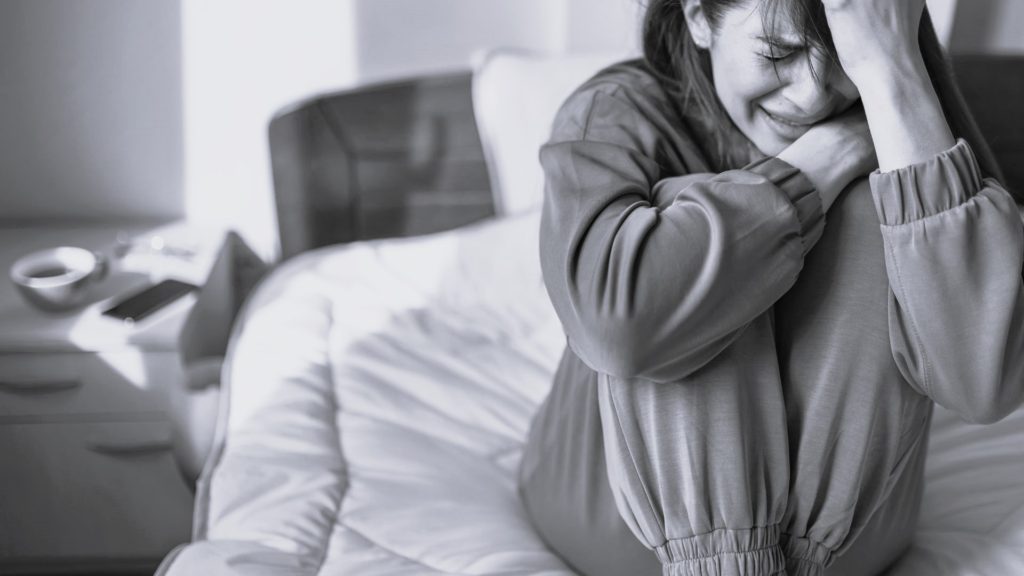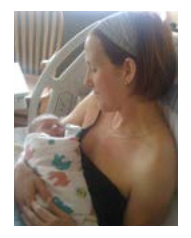Many people have heard about Postpartum Depression (PPD), but not many know that there are other types of Perinatal Mood and Anxiety Disorders (PMADs) that can be equally debilitating.
The most common thing I hear from moms struggling with any of these disorders is, “I do not feel like myself,” or “This is not what I expected it to be like.”
Here’s what you need to know to take care of yourself or to help others who might be suffering:
PPD: Postpartum Depression (PPD) is often characterized by a depressed or sad mood, though some new parents describe it as more of an elevated level of agitation or irritability. Changes in appetite and difficulty enjoying things are also common. These parents (dads get PPD, too) often notice a feeling of detachment from their babies. Some have thoughts about dying or fantasize about running away, known as escapist fantasies.
PBD: Those with Postpartum Bipolar Disorder (PBD) may cycle between depression and mania/hypomania (a less severe level of mania). Mania can involve racing thoughts, rapid speech, being overly productive and getting little to no sleep. Moms with PBD are at higher risk for suicide and/or psychosis.
PPA: Parents with Perinatal/Postpartum Anxiety (PPA) generally feel restless and have a hard time relaxing. This can cause disruptions with sleeping (beyond the sleep disruptions caused by having a new baby), because of the difficulty turning off the brain. Many moms who struggle with PPA have a so-called type-A personality, and feel pressure to appear they’re handling everything well.
PPOCD: Perinatal/Postpartum Obsessive-Compulsive Disorder (PPOCD) involves anxious thoughts, but the thoughts sometimes become scary or disturbing (known as intrusive thoughts). These moms do NOT want to hurt their children, and go to great lengths to avoid these thoughts coming true. In reality, they’re at very low risk of causing harm.
(I hope that is reassuring!)
Some moms engage in compulsive behaviors to get temporary relief from the thoughts. A common example is repetitive thoughts that the baby has stopped breathing. Mom will then check on the baby numerous times and become unable to sleep.
PP-PTSD: If a woman has had a history of trauma that’s reactivated during pregnancy/childbirth, or had a traumatic experience during her labor, delivery or postpartum, she may devleop Postpartum Post-Traumatic Stress Disorder (PP-PTSD).
A loss, medical emergency, unexpected intervention, C-section or having a baby confined to the NICU are examples of traumas. Women with a history of sexual abuse or assault are also at risk. Those with PTSD tend to avoid talking about what happened, and may experience nightmares or flashbacks. Partners, who may have witnessed events, are also at risk.
PPP: Postpartum Psychosis (PPP) occurs in 1 out of 1,000 births. And when it does, it’s an emergency.
Symptoms generally begin quickly, within the first two weeks following birth. These moms are often the ones in the media who die by suicide or commit infanticide. Moms having a psychotic episode might have bizarre or irrational thoughts. And yet to the person suffering from psychosis, such thoughts make sense, and aren’t distressing. Some moms have visual or auditory hallucinations, and believe what they’re experiencing is real.
If you’re struggling, or know someone who is, it’s extremely important to find a specialist who is an expert at treating PMADs, such as those providers listed on the Pregnancy and Postpartum Support MN site at ppsupportmn.org.
You can also call or text the PPSM HelpLine at 612-787-7776 or write [email protected].
Though the HelpLine isn’t a crisis service, it can get you connected with therapy, psychiatry and free peer support services, including a private Facebook group.
Crystal Clancy is a licensed marriage and family therapist and the owner of Iris Reproductive Mental Health of Burnsville. She is also the executive director of community engagement for Pregnancy and Postpartum Support Minnesota and a co-coordinator of the Minnesota chapter of Postpartum Support International.



















